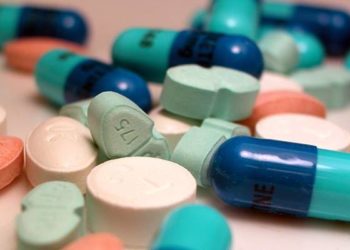Statin medications linked to memory impairment
1. In a retrospective cohort analysis, statin medications were strongly associated with acute memory impairment when compared to patients not on any lipid lowering drugs (LLDs). This was most pronounced in the first 30 and 60 days, but the positive relationship remained in the long term as well. Very few positive cases were present in re-challenge scenarios, however.
2. Similarly positive results were also evident amongst patients on non-statin LLDs when compared to patients not on any LLDs in the first 30 and 60 days. This suggests that detection bias may be major a contributor to the positive results.
Evidence Rating Level: 2 (Good)
Study Rundown: Since statin medications are used by a large proportion of the population, safety of these drugs has been a concern. There have been several reports that have identified an association between statin use and memory impairment, although no mechanism has yet been identified. The goal of this study was to identify if there was an association between statin use and acute memory impairment. The results showed that statin medications were strongly associated with acute memory impairment when compared to patients not on any lipid lowering drugs (LLDs). This was most pronounced in the first 30 and 60 days, but the positive relationship remained in the long term as well. Very few positive cases were present in re-challenge scenarios, however. Similarly positive results were also evident amongst patients on non-statin LLDs when compared to patients not on any LLDs in the first 30 and 60 days. This suggests that detection bias may be a major contributor to the positive results.
The major strength of the study was the large size of the cohort evaluated. However, there were several weaknesses. Only a very small number of cases were validated with actual chart review, and no validated test for memory impairment was performed. There were many significant differences between the groups on statin medications versus those who were not. Also, similarly positive results seen in patients with statins and non-statin LLDs compared to non-LLD users show that detection bias might be the major contributor to the positive results.
Click to read the study, published today in JAMA Internal Medicine
Relevant Reading: Do statins impair cognition? A systematic review and meta-analysis of randomized controlled trials
In-Depth [retrospective cohort]: The cohort used for this study was The Health Improvement Network (THIN), which is a database of patient records from general practitioners (GPs) in the United Kingdom. The time period over which this data was collected was 1987 – 2013. Exclusion criteria included anyone with known history of cognitive dysfunction or any CNS diseases. The study group consisted of new users of any statin drugs. A propensity score matched group of non-users of lipid lowering drugs (LLDs) were used as the comparison group. A third group of patients who were on non-statin LLDs were included. The studied outcome of the study was the onset acute, reversible memory impairment, based on the diagnosis codes written by the GPs. Validity of this diagnosis was examined by mailing questionnaires to the GPs regarding 100 of the patients with the diagnosis, asking for confirmation. Also, investigators evaluated the free-hand text of 1000 of the patient charts with the new memory impairment diagnosis.
482,543 statin users were included, along with an equal number of matched non-LLD users. There were 115,297 users of non-statin LLDs identified. Compared to non-users of LLDs, users of statin medications had a significantly higher risk of acute memory impairment (OR 1.23; 95% CI, 1.18–1.28). The risk was dramatically higher in the first month (OR 4.40; 95% CI, 3.01–6.41) and the second month (OR 2.41; 95% CI, 1.85–3.13). Similarly strong odds were identified in the first one and two month periods when comparing non-statin LLD users to non-LLD users. In either the case of statins or non-statin LLD, there were very few positive cases in medication re-challenge scenarios.
Image: PD
©2015 2 Minute Medicine, Inc. All rights reserved. No works may be reproduced without expressed written consent from 2 Minute Medicine, Inc. Inquire about licensing here. No article should be construed as medical advice and is not intended as such by the authors or by 2 Minute Medicine, Inc.









